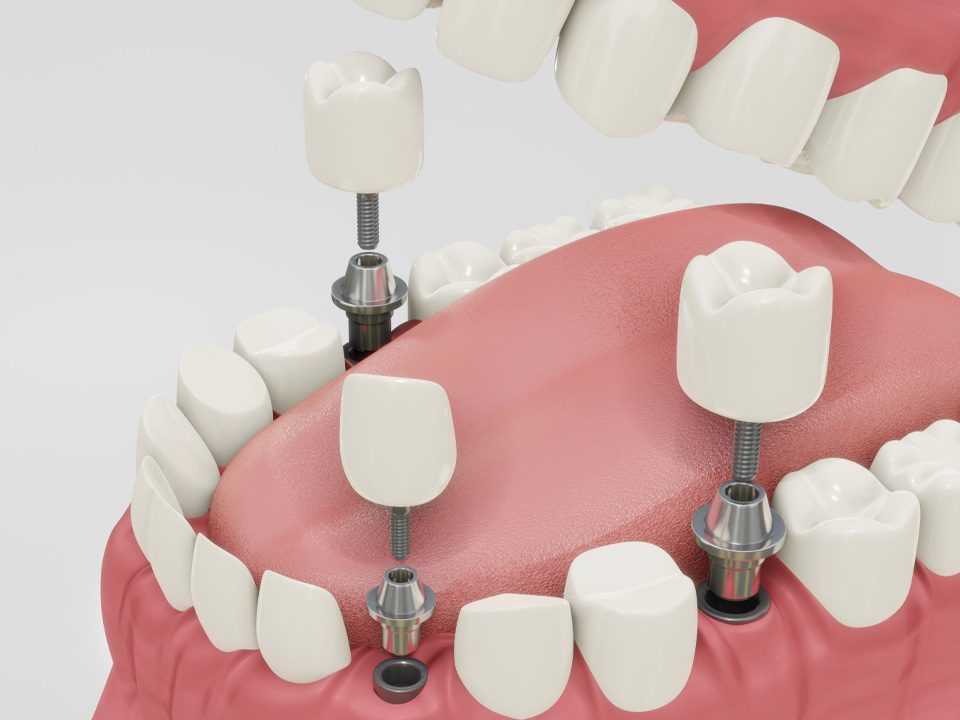
Does Ear Infection Cause Toothache?
May 29, 2025
How Do You Treat an Abscessed Tooth?
June 5, 2025Sinus pressure and toothaches can feel a lot alike. Sometimes, it’s hard to know if the pain in your face and upper teeth is coming from a sinus issue or a dental problem. The truth is that sinus infections and toothaches can be connected. Understanding sinus infection toothache can help you find the right fix.
Table of Contents
ToggleCan Toothache Cause Sinus Pressure or Infection?
Yes, a toothache can cause sinus pressure or infection. It usually happens when an upper back tooth has an infection, and that infection spreads to the sinuses. Since the roots of your upper teeth are close to your maxillary sinuses (the ones behind your cheeks), a dental problem can easily affect your sinuses. Dentists Avondale call it odontogenic sinusitis. It can make your face feel puffy, your teeth ache, and your nose feel stuffed up.
Can Sinus Pressure Cause Toothache?
Yes, sinus pressure causes toothache. Your sinuses sit right above your upper teeth. When they get inflamed from an infection or allergies, they can push on the tooth roots. This pressure makes your teeth hurt. Sometimes it’s just one tooth, but often it’s a few of them. Usually, the pain gets worse when you move your head or lie down. A sinus infection toothache often feels like a dull, deep ache, but it can also feel sharp when the pressure increases.
Sinus Infection and Toothache Symptoms
Symptoms of sinus infections which are different from toothache:
- Facial pain, often around the cheeks and forehead
- Stuffy nose with mucus discharge
- Reduced sense of smell
- Feeling tired and having a higher body temperature
- Headache and pain when touching the face or forehead
Symptoms of toothache that are different from sinusitis:
- Sharp, shooting pain in one tooth
- Sensitivity to hot and cold
- Pain when chewing or biting down
- Swelling around the tooth
- Throbbing pain that doesn’t ease up
Sinus Infection vs Toothache: How to Tell the Difference?
The difference between sinus infection and toothache includes:
Sinus Infection
- Pain in several upper teeth
- The pressure that changes when you move your head
- Nasal symptoms like stuffiness
- Improves with sinus meds
Toothache
- Pain in one specific tooth
- Hurts when eating or drinking something hot or cold
- Swelling or redness near the tooth
- Dental care is usually needed
How Do I Know If My Tooth Pain is from Sinus Infection?
Diagnosing a sinus infection toothache requires a careful assessment. Dentists will examine your teeth for signs of decay, infection, or abscesses. They may tap on the teeth to see if one is more sensitive. Teeth X-rays can reveal dental issues like cavities or root infections. On the other hand, if the pain seems widespread across the upper teeth and is accompanied by nasal congestion or pressure that worsens when bending over, it may point to a sinus infection.
An ENT specialist can check your sinuses for inflammation or fluid buildup using imaging tests or nasal endoscopy. Getting the right diagnosis is key since treatments differ significantly for dental infections versus sinus issues.
How to Relieve Sinus Infection Toothache?
To relieve a sinus infection toothache, it’s essential to address both the sinus problem and the toothache itself. Start by drinking plenty of fluids like water, broth, and herbal teas. It thins the mucus and makes it easier to drain. Staying hydrated is crucial because dry sinuses can make the pain worse.
Inhaling steam is next. You can lean over a bowl of hot water with a towel over your head. Breathe in the steam slowly. This can loosen mucus, reduce sinus pressure, and, in turn, ease the sinus infection toothache. Taking a warm shower can have a similar effect.
Nasal irrigation is another great way to clear your sinuses. Use a saline rinse with a Neti pot or a squeeze bottle. Make sure the water is sterile to prevent further infection. This will help wash out mucus and reduce the pressure causing the tooth pain.
Over-the-counter pain relievers can help manage a sinus infection toothache. Medications like ibuprofen reduce inflammation, while acetaminophen can help with pain. Decongestants can also help clear your nasal passages.
A warm compress to the face can help ease the pain. Dip a clean piece of cloth in warm water, wring it out, and place it over your cheeks and forehead. The warmth improves blood circulation and can reduce sinus pressure. Repeat this a few times a day for the best results.
Resting is important, too. Your body needs time to heal from both the infection and the toothache. Try to sleep with your head elevated. This can help drain your sinuses and reduce pain. Avoid lying flat, as that can increase sinus pressure and make the toothache worse.
If your sinus infection toothache doesn’t improve or if it gets worse, it’s time to see a healthcare professional. They can determine whether the pain is from a sinus issue or a dental problem. In some cases, antibiotics may be needed if a bacterial infection is causing the sinusitis.
Click to Learn More about Our Same Day Dental Crowns Avondale.
How Long Does a Sinus Toothache Last?
| Acute Sinusitis | Usually, less than 4 weeks |
| Subacute Sinusitis | About 4 to 12 weeks |
| Chronic Sinusitis | More than 12 weeks |
| Sinus Toothache | Often improves once sinusitis is treated |
Let’s Recap
Sinus infections and toothaches can feel very similar. Knowing the difference between sinus infection vs toothache can save you a lot of guesswork. If you’re unsure, let a dental expert check it out. A sinus infection toothache can be frustrating, but with the right care, relief is possible.
FAQs
Can sinus pressure cause toothaches?
Yes, sinus pressure can make your upper teeth hurt.
How do you relieve sinus pressure from a toothache?
Try steam inhalation, nasal irrigation, and over-the-counter pain meds.
Can a bad tooth cause sinus pressure?
Yes, an infected upper tooth can spread to your sinuses.
Can a sinus infection cause tooth sensitivity to hot and cold?
Yes, sinus pressure can make teeth more sensitive.
What is the best painkiller for sinus toothache?
Ibuprofen or acetaminophen usually work well.
How do you know if a tooth infection has spread to your sinuses?
You may notice facial swelling, pain in the upper teeth, nasal congestion, and possibly foul-smelling nasal discharge. A dental exam and imaging can confirm it.





